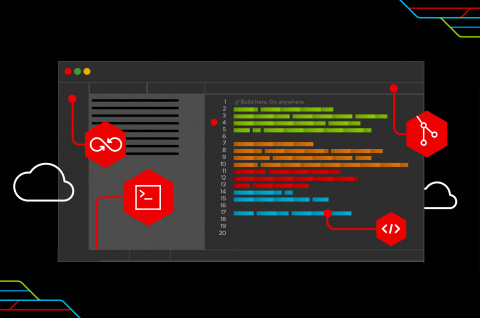The OpenShift Partner Lab
In our previous blog, we discussed how to position OpenShift Partner Labs (OPL) as a resource for partners to build and innovate together. This article will take a deeper look into cluster availability, requirements, and use cases.
Established 2 years ago, OPL has been dedicated to continuously enhancing our partners' experience with Red HatⓇ OpenShiftⓇ. We actively analyze feedback and maximize available resources like clusters' specification availability and processes, to ensure that the lab remains up-to-date and responsive to partner needs. At Red Hat, collaboration is essential for growth and OpenShift Partner Lab (OPL) exemplifies our commitment to providing an environment where our partners can develop, test, and innovate products that integrate seamlessly with Red Hat OpenShift.
OPL offers our Registered Technology Partners a dedicated and customizable Red Hat OpenShift cluster hosted on AWS, free of charge, for up to 1 month. This project enables a partner to save resources on environment setup, avoid cloud costs, and receive timely assistance throughout the development and testing phases.
Cluster availability and requirements
The available clusters are highly customizable to meet the specific requirements of each project. You can choose between multiple Red Hat OpenShift versions running on different size clusters—from 2 vCPU, 8GB RAM to 16 vCPU, 64GB RAM. The lab supports OpenShift AI and OpenShift Virtualization as well. The clusters running OpenShift Virtualization include m6a.metal cluster - 128vCPU - 512G RAM - 500G disk. If these specifications do not align with your requirements, we will set up a meeting to assess the lab requirements.
The clusters are available during regular business hours and are aligned as closely as possible with the partner’s time zone. We can also accommodate the clusters’ availability for teams operating in different time zones.
How to access the lab
To request lab access, partners must first discuss and confirm their business needs and timelines with a Red Hat sponsor. The sponsor can be any Red Hat team member familiar with the project, such as a Partner Account Manager, Solution Architect, or Engineering Partner Manager (EPM) who will facilitate the lab lease request. Your sponsor serves as a liaison between the partner and the lab team. We expect the Red Hat sponsor to have evaluated and proposed other solutions to provide the partner with a Red Hat OpenShift environment before requesting an OPL cluster lease, e.g. partner subscription, OpenShift Local, Red Hat Demo Platform, and more.
Use cases for OpenShift Partner Labs
As lab access is contingent on business need and timing, submitted use cases will also undergo evaluation. Suitable use cases for utilizing OPL are:
- Completing the final stages of development, certification, and testing of operator, containers, or Helm charts.
- Developing proof-of-concepts.
- Creating joint solutions between the partner and Red Hat.
- Engaging in customer demos when the Red Hat Demo Platform is not available or appropriate.
This is a partial list of all the suitable use cases. Each use case will be evaluated for approval.
How much should I know about Red Hat Openshift when using the lab?
We expect our partners to have operational knowledge of Red Hat OpenShift and Kubernetes. In addition, they should have experience with containers, operators, and/or Helm charts as appropriate.
Limitations
For bare metal offerings, we provide AWS EC2 m6a.metal non-virtualized bare metal nodes. We do not have explicit access to all networking infrastructure with any specific cloud provider therefore, some networking tasks may be hindered. For example, let’s suppose you’re testing your product's compatibility with OpenShift Virtualization. You can’t use Layer 2 and LocalNet on the secondary network configured as is, i.e. right out of the box. You’ll have to consider the limitations of your cloud provider's networking stack.
If the cluster is inoperable, disabled, or inaccessible, Red Hat will not perform disaster recovery or backup of the data. We’ll need to provide the partner with a new cluster.
The lab is designed for short-term work. If there is a long-term project, the partner is encouraged to discuss getting assistance with Partner Subscriptions or developer subscriptions or leveraging OpenShift Local with their Red Hat sponsor.
Next steps
To make a request, partners and their sponsors must complete the Request Form. The lab team will review the submission and provide timely feedback on whether the request has been approved. When a partner is granted access to a cluster and the lab is created, an automatic email will be sent to the primary technical contacts including the cluster login credentials.
For any questions regarding OPL, feel free to contact partner-lab@redhat.com.

